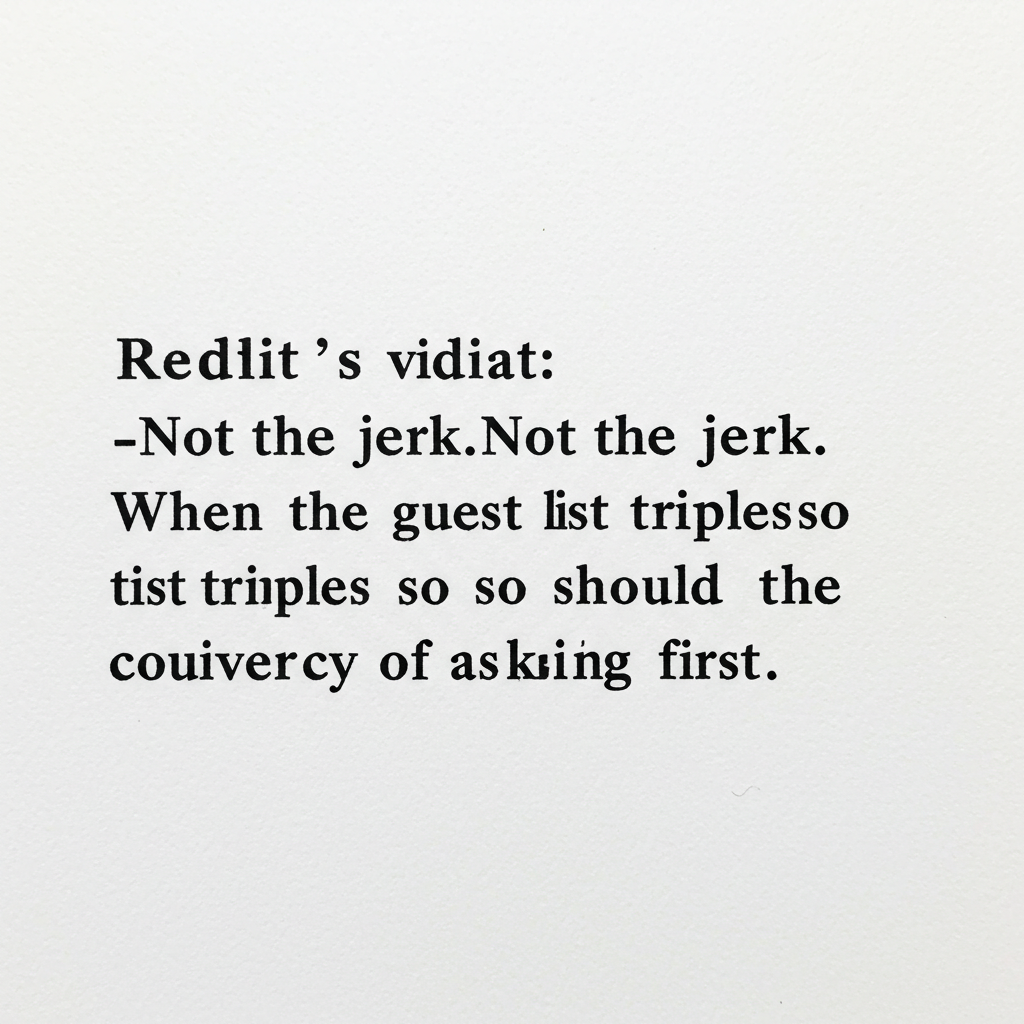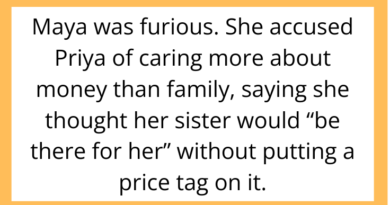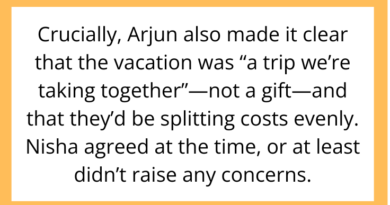AITAH for Refusing to Pay for My Girlfriend’s Friends at Dinner After I Invited Only Her?
You plan a quiet dinner date, expecting quality time and connection—but instead, you’re suddenly footing the bill for a table full of strangers. In this AITAH-inspired story, we dive into a scenario that has sparked heated debates online: when generosity is mistaken for obligation, who’s really at fault?
Let’s break it down.
The Dinner Date That Turned Into a Group Hangout

A 28-year-old man—let’s call him Sameer—posted on r/AITAH with a story that started as a simple romantic gesture. Sameer had been dating his girlfriend, Laila (26), for about eight months. To celebrate her recent promotion, he made a reservation at a trendy mid-range restaurant in the city and invited her out to dinner—just the two of them.
Or so he thought.
When Sameer arrived at the restaurant, he was surprised to see that Laila had brought three of her friends along. She greeted him cheerfully and said, “I hope you don’t mind! I thought it’d be fun to celebrate together.”
Sameer smiled politely and went along with it. The group ordered starters, mains, desserts, and cocktails—racking up quite a bill. But when the check arrived, things took a turn.
The Bill Comes: Awkward Silence

When the waiter placed the check on the table, Laila looked at Sameer expectantly. One of her friends even joked, “Wow, thanks for the treat!” But Sameer didn’t laugh.
He picked up the bill, scanned it, and calmly said, “I’ll pay for Laila and myself. The rest of you can split your part.”
Dead silence.
Laila looked shocked. Her friends awkwardly scrambled for their wallets. One of them whispered, “This is so embarrassing.”
After the meal, Laila confronted Sameer outside. She accused him of being cheap, humiliating her in front of her friends, and ruining what was supposed to be a fun night. Sameer fired back, saying she blindsided him and took advantage of his kindness.
Now he’s turning to Reddit and asking: AITAH for not paying for my girlfriend’s friends when I only invited her?
The Case for Sameer: Clear Boundaries, Clear Intentions

Sameer had every right to assume this was a one-on-one dinner. Nowhere in his invitation did he mention treating a group. Laila added guests without asking and assumed Sameer would foot the bill—not just for one extra, but for three.
From a financial and ethical standpoint, Sameer was well within his rights. Unexpectedly dropping a large bill on someone without prior discussion is, frankly, inconsiderate.
This wasn’t about money—it was about respect.
The Case for Laila: A Misread of Social Cues?

Laila may have seen the dinner differently. In her mind, it was a celebration, and celebrations often involve friends. She might have genuinely thought Sameer wouldn’t mind or assumed he’d be happy to “show off” a little by paying for everyone.
Still, even if her intentions weren’t malicious, the lack of communication is the key issue. Assuming someone will pay for a group without asking them first is risky and presumptive.
Reddit Weighs In: The Community Speaks

Unsurprisingly, Reddit sided overwhelmingly with Sameer.
-
“You invited her. Not her entourage,” one commenter wrote.
-
“Laila sounds like she was trying to flex with your wallet.”
-
“Not only are you NTA, but you dodged a bullet. She showed you how she views money and boundaries.”
However, a small minority suggested that Sameer could’ve avoided embarrassment by just paying and addressing the issue later. “Public humiliation isn’t a good look,” one user argued.
Still, the consensus was clear: expectations around money and invitations need to be discussed—not assumed.
Why Situations Like This Cause So Much Conflict

It’s Not About the Money—It’s About Control
People often say, “It’s just money,” but in relationships, money is tied to power, boundaries, and expectations. When one partner makes decisions that affect the other financially without consent, it can lead to deep resentment.
Communication Is Everything
Sameer and Laila clearly had different assumptions about the evening. A quick heads-up—“Mind if my friends join?”—could’ve changed everything. Instead, the surprise felt more like a trap.
This situation is a classic example of a mismatch in social expectations—and what happens when people don’t check in with each other first.
What Should Have Happened?

If You’re the Inviter:
-
Be clear. Say, “I made a reservation for us” to avoid misunderstandings.
-
Clarify who’s being treated if you’re covering the bill.
If You’re the Invitee:
-
Never assume you can bring others unless it’s been explicitly stated.
-
Always check before making plans that involve someone else’s time or money.
Lessons from the Table

Sameer’s story is more than a dinner gone wrong—it’s a reminder that even small gestures can reveal big incompatibilities. It’s not about refusing to pay. It’s about being cornered into an expectation that wasn’t discussed or agreed upon.
The real villain here isn’t stinginess—it’s assumption.



